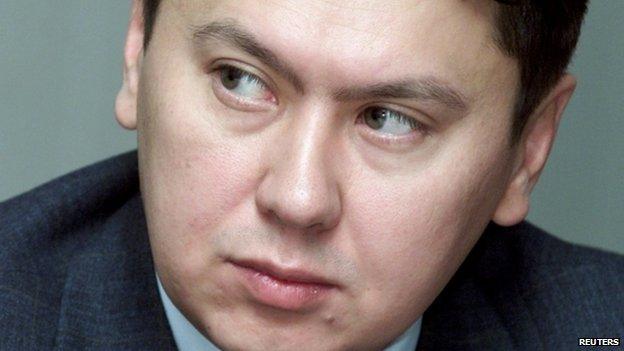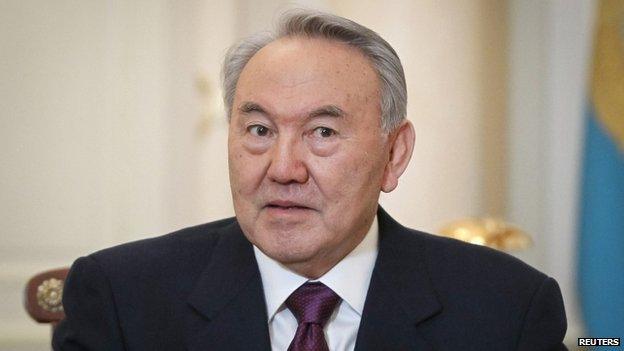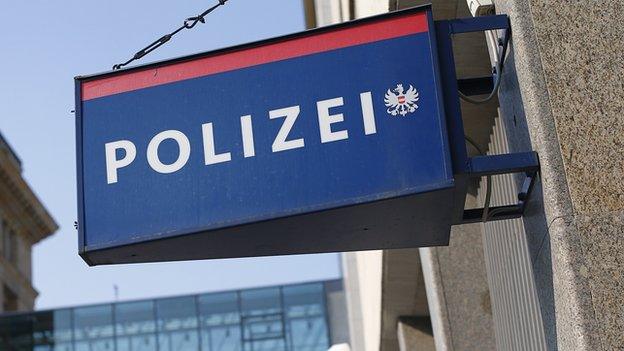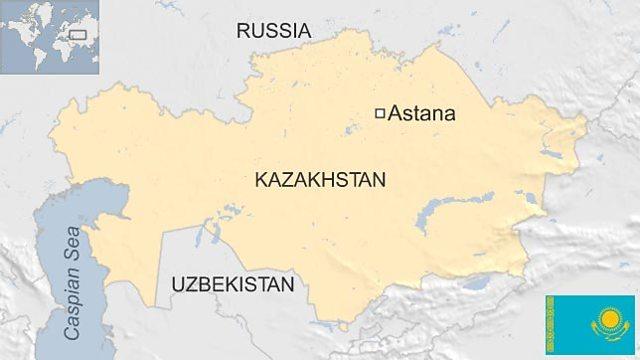Austria post-mortem finds Kazakh death was suicide
- Published

Rakhat Aliyev, seen in an undated photo, was a vocal critic of President Nazarbayev
Prosecutors in Austria say former Kazakh ambassador Rakhat Aliyev, found dead in a Vienna prison on Tuesday, appears to have killed himself.
They cited a post-mortem on the body of Mr Aliyev, who was found hanging in prison while awaiting trial for the murder of two bankers in Kazakhstan.
His lawyers want an investigation.
The man once married to a daughter of Kazakh President Nursultan Nazarbayev was jailed in absentia in Kazakhstan for seeking to oust the government.
Austria had refused requests to extradite Mr Aliyev, who was sacked as Kazakh ambassador to Vienna in 2007.
On the day he was found dead he had been due to testify against two former cellmates accused of blackmailing him with the threat of getting him killed in a way that would look like suicide.
No examinations so far suggest there was any third-party involvement in Mr Aliyev's death, the Austrian authorities said.
The body was examined by an experienced forensic expert, Vienna's deputy chief prosecutor Gerhard Jarosch said.
Neither the examination of his body along with the prison cell in which it was found nor the prison's CCTV footage showed any signs of violence or other third-party involvement in his death, he said.
The results of a toxicological test, routinely conducted as part of judicial post-mortems, were due in few days, the deputy chief prosecutor added.
This would reveal whether at the time of his death Mr Aliyev's blood had contained traces of anything other than his regular heart medication.
Single cell
Mr Aliyev had been moved to a single cell after the alleged threat against him became public and was not under suicide watch.
One of his lawyers called for a full investigation into his death.
"I have significant doubts," Klaus Ainedter told Austrian press agency APA. "I visited him only [on Monday]. There was absolutely no indication of a danger of suicide."

President Nazarbayev was Mr Aliyev's ex father-in-law
Mr Aliyev was first charged in 2007, with Austria twice turning down extradition requests on the grounds that he would not receive a fair trial in Kazakhstan.
He had been in custody since June after turning himself in once Austria had agreed to hold the trial.
He had denied the murder charges, saying they were politically motivated.
A businessman with wide contacts among the Kazakh elite, he spoke out against President Nazarbayev after being sacked as ambassador.
He was formerly married to Dariga Nazarbayeva, eldest daughter of Mr Nazarbayev.
In power virtually unchallenged since Kazakhstan's independence from the Soviet Union in 1991, Nursultan Nazarbayev has focused on economic reform while resisting moves to democratise the political system.
Mr Aliyev's case received huge publicity in Austria with leading lawyers getting involved in the proceedings and accusations that the Kazakh secret service had tried to influence the judicial process.
- Published6 June 2014

- Published24 March 2023
